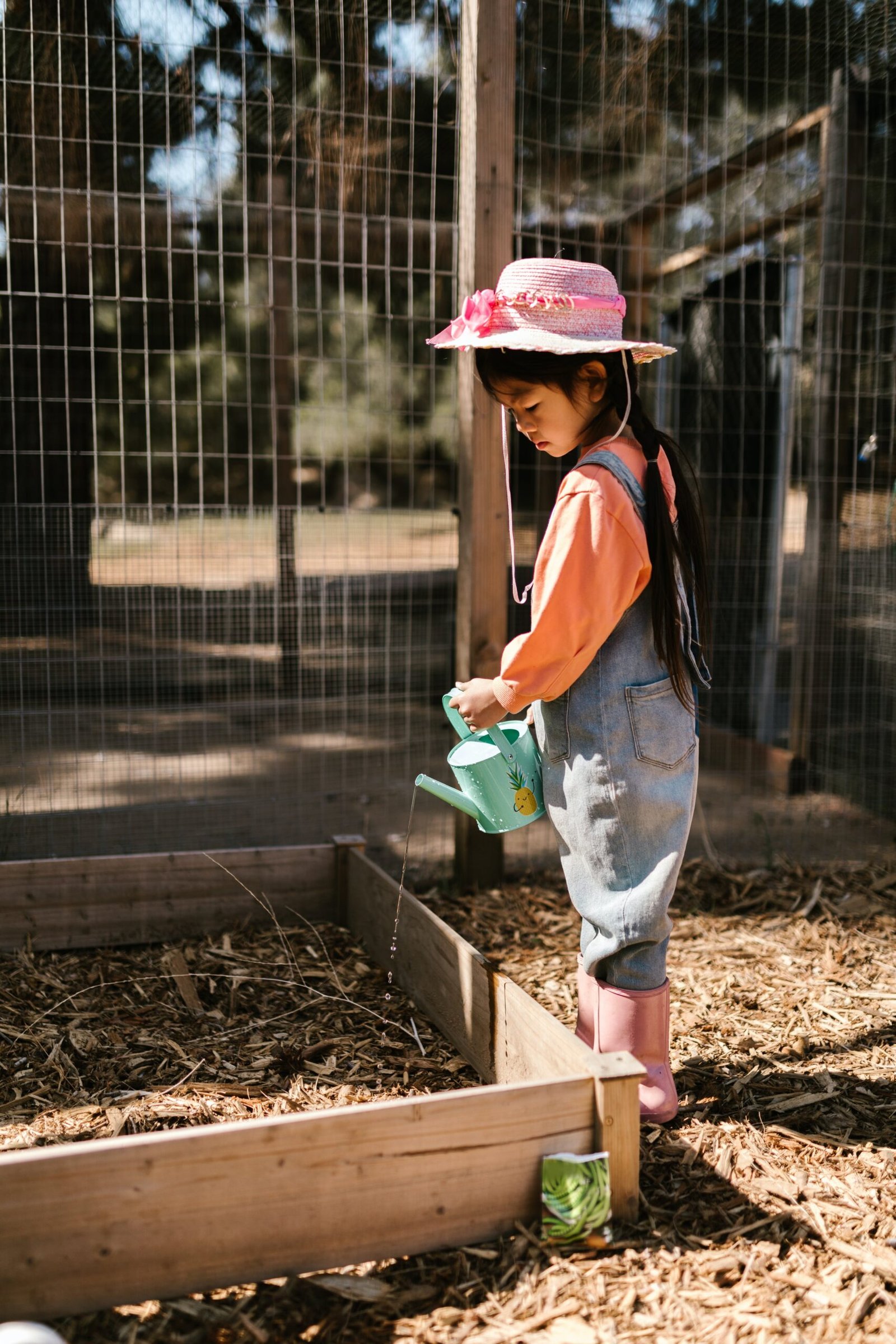
Urban farming has become an increasingly popular practice in many cities around the world, thanks to its numerous benefits. In particular, composting plays a crucial role in urban farming, providing a sustainable solution for waste management and helping to create nutrient-rich soil. By harnessing the power of composting, urban farmers can enhance the productivity and viability of their gardens, while also promoting a healthier environment for the entire community. In this article, discover the undeniable advantages of composting in urban farming and how it can transform the way we grow food in our cities.
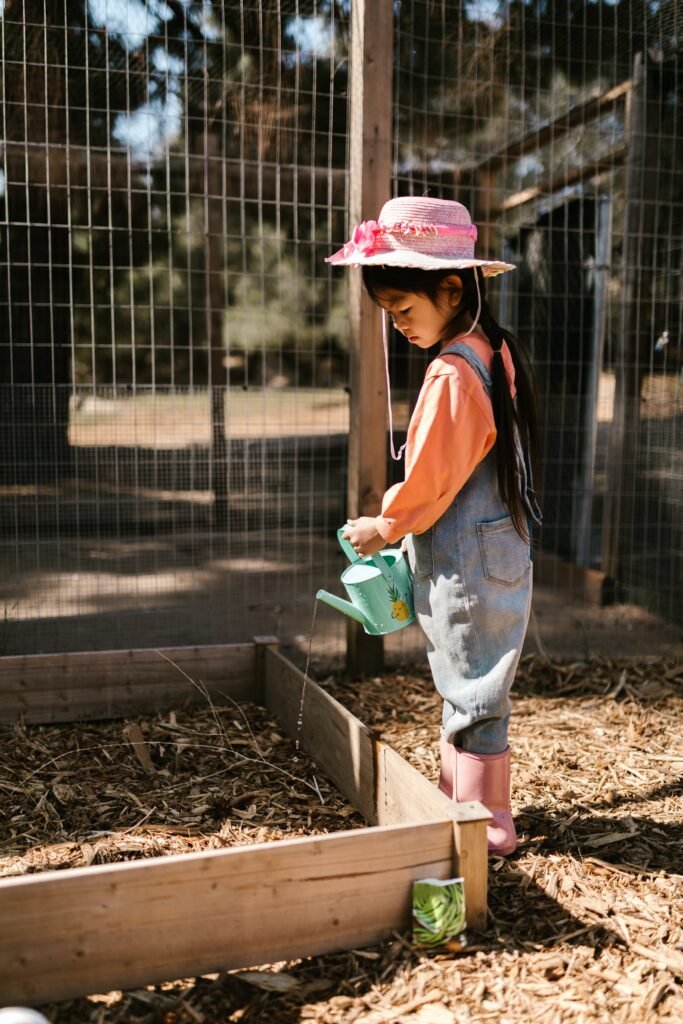
Reduced Waste
Composting in urban farming is an effective way to reduce waste and minimize landfill usage. By converting organic waste, such as food scraps and yard trimmings, into nutrient-rich compost, you can significantly decrease the amount of waste that ends up in landfills. Instead of contributing to the growing waste problem, composting allows you to divert organic materials from the waste stream and put them to good use.
Decreased landfill waste
When organic waste decomposes in landfills, it produces methane, a potent greenhouse gas that contributes to climate change. By composting this waste instead, you can reduce the amount of organic waste that ends up in landfills, thus mitigating greenhouse gas emissions. This not only helps protect the environment but also promotes a cleaner and healthier atmosphere for everyone.
Reduced greenhouse gas emissions
The composting process itself also helps reduce greenhouse gas emissions. When organic waste decomposes aerobically in a compost pile, it produces carbon dioxide, which is released into the atmosphere. However, when waste decomposes anaerobically in landfills, it produces methane, a gas that is 25 times more potent in trapping heat than carbon dioxide. By composting, you are opting for the more environmentally-friendly method of decomposition, which significantly reduces greenhouse gas emissions.
Soil Enrichment
Composting plays a crucial role in enriching soil and improving its overall quality. The nutrient content of compost is significantly higher compared to regular soil, making it an excellent amendment for enhancing plant growth. When you incorporate compost into your soil, you are introducing essential nutrients such as nitrogen, phosphorus, and potassium, which are vital for healthy plant development.
Increased nutrient content
With compost, your soil becomes a treasure trove of vital nutrients that plants need to thrive. Compost acts as a natural fertilizer, providing a balanced mix of nutrients that are easily absorbed by plants. This nutrient-rich environment promotes optimal growth, enabling your plants to reach their full potential and produce healthier yields.
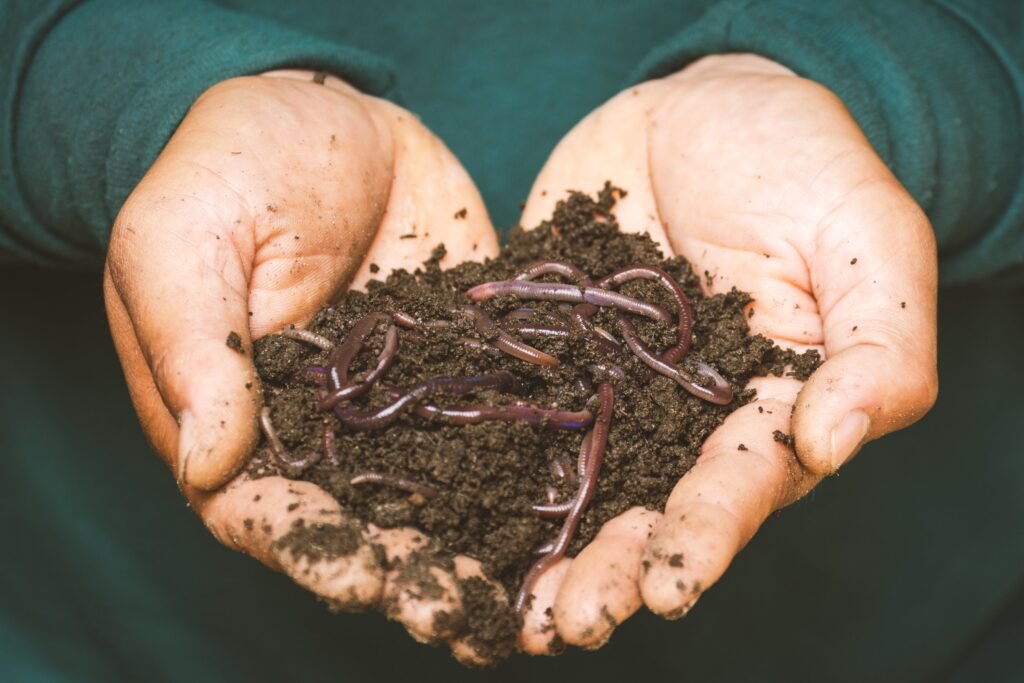
Improved soil structure
Another benefit of composting in urban farming is the improvement in soil structure. Compost acts as a natural soil conditioner, improving both heavy clay soils and sandy soils. Through its ability to retain moisture, compost helps prevent soil compaction and erosion, ensuring that your soil remains loose, well-drained, and airy. This improved soil structure allows plant roots to penetrate more easily, leading to stronger root development and overall plant health.
Enhanced water retention
Compost also helps improve water retention in soil, reducing the need for excessive watering. Its natural ability to retain moisture allows plants to access water over a more extended period, even during dry spells. This ability is particularly beneficial in urban farming, where water resources may be limited or expensive. By incorporating compost into your soil, you can conserve water while ensuring your plants receive the hydration they need for optimal growth and productivity.
Reduced Soil Erosion
Urban farming often faces challenges when it comes to soil erosion due to the lack of natural landscapes and the prevalence of hard surfaces. However, by embracing composting, you can actively protect your topsoil from erosion and prevent runoff.
Protecting topsoil
Topsoil is the uppermost layer of soil that contains the majority of nutrients and organic matter necessary for plant growth. Through erosion caused by wind or water, topsoil can be lost, leading to decreased fertility and productivity. By incorporating compost into your soil, you can significantly reduce erosion. Compost provides stability to the soil particles, preventing them from being carried away by wind or water, and helps maintain the integrity of your topsoil.
Preventing runoff
Composting also plays a crucial role in preventing runoff, which can carry away valuable nutrients and contribute to pollution. When heavy rains occur, water often flows over impermeable surfaces, picking up pollutants along the way and carrying them to nearby water bodies. By incorporating compost into your soil, you can enhance its ability to absorb water, reducing the risk of runoff. This not only helps protect water quality but also ensures that your plants receive the nutrients they need for optimal growth.

Reduced Chemical Dependency
One of the significant advantages of composting in urban farming is the reduced dependency on chemical fertilizers. By utilizing compost as a natural source of enriched soil, you can eliminate or greatly reduce the need for synthetic fertilizers.
Natural source of enriched soil
Compost serves as a potent soil amendment, providing plants with essential nutrients and organic matter. By incorporating compost into your soil, you are nourishing it naturally and creating a thriving environment for your plants. This natural enrichment reduces the reliance on chemical fertilizers, which often come with environmental and health risks. Composting allows you to embrace sustainable and eco-friendly practices while still ensuring optimal plant health.
Decreased reliance on chemical fertilizers
The use of chemical fertilizers in urban farming is often driven by a desire to achieve quick results. However, relying heavily on these synthetic fertilizers can have adverse effects on the environment. Excessive use of chemical fertilizers can lead to nutrient imbalances, soil degradation, and water pollution. By composting, you can reduce or eliminate the need for chemical fertilizers, ensuring that your plants receive a balanced and sustainable source of nutrients.
Improved Plant Growth
Composting plays a vital role in improving plant growth and overall plant health. With enhanced nutrient availability, stronger root development, and increased resistance to disease and pests, composting significantly benefits your urban farming endeavors.
Stronger root development
One of the key benefits of composting is its ability to promote stronger root development in plants. The organic matter and nutrients present in compost provide a favorable environment for root growth, enabling roots to penetrate deeper into the soil. Strong roots result in healthier and more productive plants, as they can access water and nutrients more efficiently.
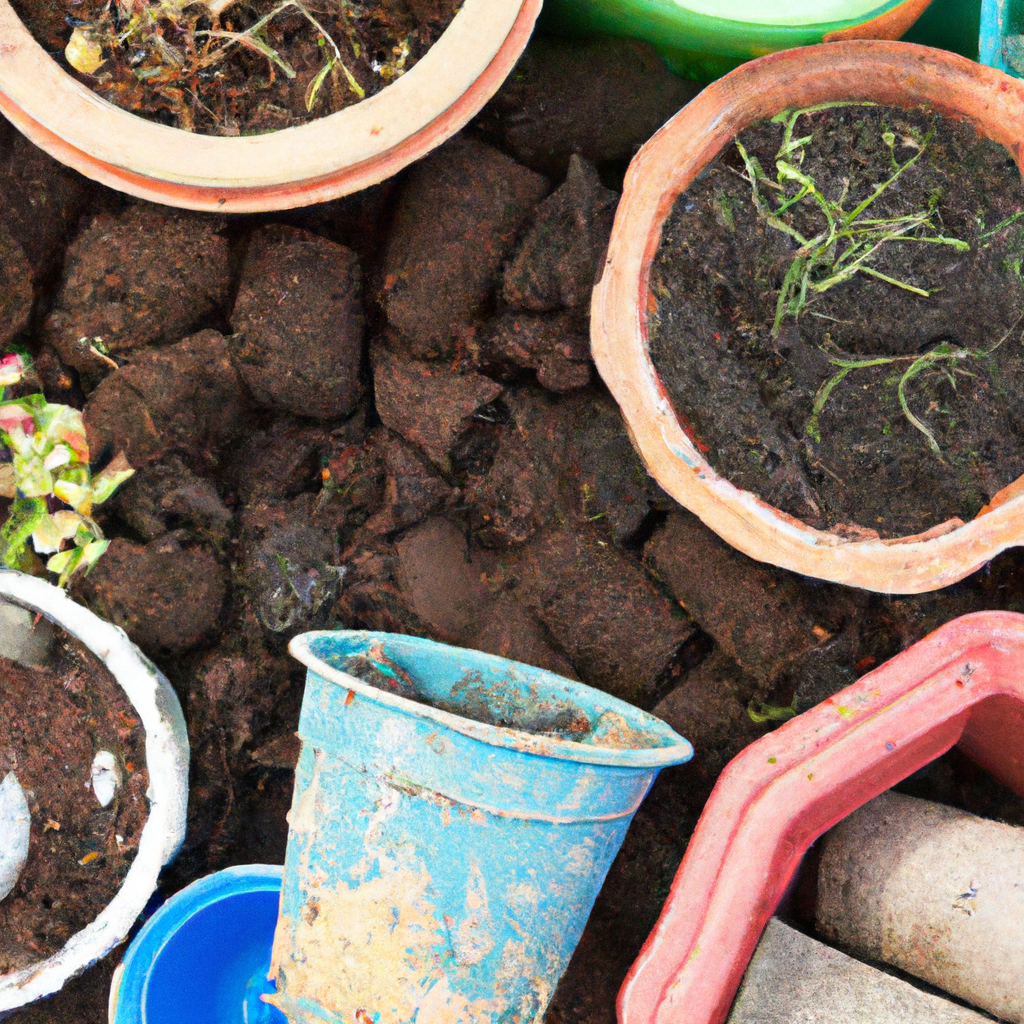
Enhanced plant resistance to disease and pests
Compost has been shown to enhance the natural resistance of plants to diseases and pests. The beneficial microorganisms present in compost help build a healthy and diverse soil ecosystem, which in turn supports plant health. By incorporating compost into your soil, you are creating an environment that encourages the growth of beneficial microorganisms, enhancing your plants’ ability to resist pathogens and pests.
Enhanced Food Production
The benefits of composting in urban farming extend to food production, with significant increases in crop yield and improved quality of fruits and vegetables.
Increased crop yield
Compost, with its nutrient-rich composition, provides plants with the essential elements they need for robust growth. When incorporated into the soil, compost releases these nutrients slowly and steadily, ensuring that plants have a constant supply throughout their growing cycle. This consistent nutrient availability leads to increased crop yield, allowing you to grow more food in your urban farming space.
Improved quality of fruits and vegetables
In addition to increased yield, composting also improves the quality of fruits and vegetables. The nutrients present in compost contribute to better flavor, color, texture, and overall nutritional value. By nourishing your plants with compost, you can harvest produce that is not only abundant but also of exceptional quality, ensuring a satisfying taste and nutritional benefits for those who consume your urban-farmed produce.
Community Engagement
Composting in urban farming provides an excellent opportunity for community engagement, education, and awareness about the importance of sustainable practices and environmental stewardship.
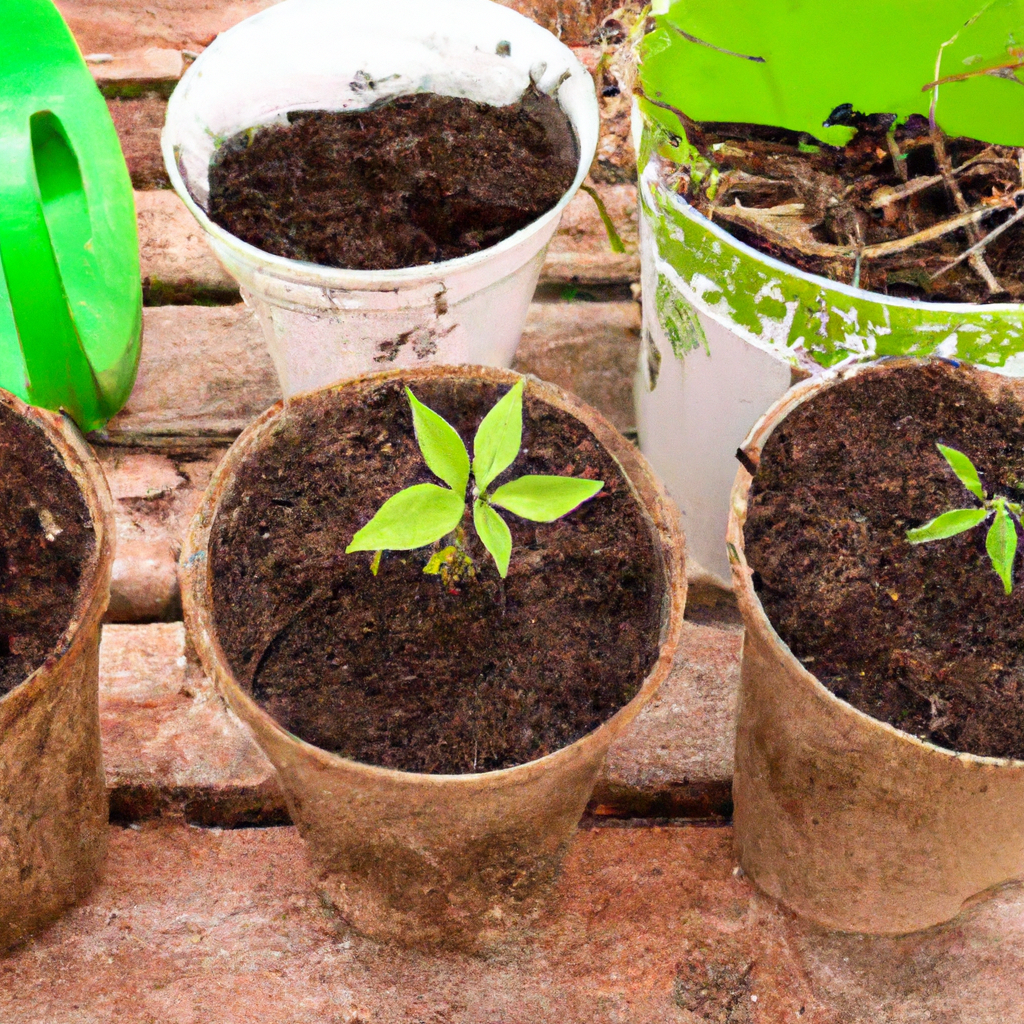
Education and awareness
By incorporating composting into your urban farming activities, you can serve as a model for sustainable practices within your community. Engaging with local schools, organizations, and individuals through workshops, presentations, and open gardens can help raise awareness about the benefits of composting and inspire others to adopt sustainable practices in their own lives. By sharing your knowledge and experiences, you can empower others to make a positive impact on the environment and promote a greener society.
Collaborative gardening projects
Composting can also foster collaboration and community building through shared gardening projects. By encouraging community members to participate in composting efforts, you can create a sense of belonging and camaraderie. Collaborative gardening projects provide opportunities for individuals to come together, learn from one another, and work towards a common goal of sustainable urban farming. These joint efforts not only strengthen community bonds but also contribute to the overall success and vibrancy of urban farming initiatives.
Cost Savings
Composting in urban farming offers significant cost-saving benefits, both in terms of lowering expenses on fertilizers and reducing waste removal costs.
Lowering expenses on fertilizers
The cost of purchasing chemical fertilizers can quickly add up, especially for those engaged in urban farming on a larger scale. By composting, you can reduce or eliminate the need for these fertilizers altogether. Compost, as a natural and nutrient-rich soil amendment, provides the necessary nutrients for plant growth, thereby significantly reducing your expenditure on synthetic fertilizers. This cost-saving measure not only benefits your urban farming venture but also contributes to your overall financial well-being.
Reducing waste removal costs
The disposal of organic waste through conventional waste removal methods can be a costly endeavor for urban farmers. Composting allows you to divert organic waste from the waste stream and put it to productive use. By composting on-site, you can drastically reduce waste removal costs and, at the same time, contribute to the creation of valuable compost that nourishes your soil. This dual benefit of cost savings and waste reduction further strengthens the economic viability and sustainability of urban farming.
Habitat Creation
Composting in urban farming goes beyond nourishing plants; it also plays a vital role in creating habitats for beneficial insects and wildlife.
Attracting beneficial insects and wildlife
Compost piles provide a welcoming environment for beneficial insects, such as earthworms, beetles, and bees. These helpful creatures aid in the decomposition process, promote soil health, and contribute to pollination. By incorporating compost into your urban farming practices, you can attract and support a diverse range of beneficial insects, creating a thriving ecosystem that enhances the productivity of your plants.
Supporting urban biodiversity
Urban environments often lack the natural habitats necessary for supporting biodiversity. However, composting in urban farming can help bridge this gap. The presence of compost piles and the diverse range of organisms they attract contribute to the overall biodiversity of your urban farming space. This increased biodiversity not only supports the health of your plants but also contributes to the overall resilience and sustainability of urban ecosystems.
Sustainable Urban Planning
Composting plays a pivotal role in sustainable urban planning, aligning with and contributing to the broader goals of urban sustainability and development.
Promoting sustainable development practices
Urban farming, with its emphasis on composting and sustainable practices, aligns with the principles of sustainable development. By incorporating composting into your urban farming initiatives, you are actively promoting environmental responsibility, resource conservation, and social equity. Through sustainable urban planning, you can create a greener and more sustainable future for your community, one that prioritizes the well-being of both the environment and its residents.
Contributing to urban sustainability goals
By composting in urban farming, you are actively contributing to urban sustainability goals. The reduced reliance on chemical fertilizers, decreased waste going to landfills, and improved soil health all contribute to a more sustainable and resilient urban environment. Your efforts in composting help pave the way for a future where cities are more self-sufficient in food production, environmentally responsible, and better equipped to meet the challenges of a rapidly changing world.





